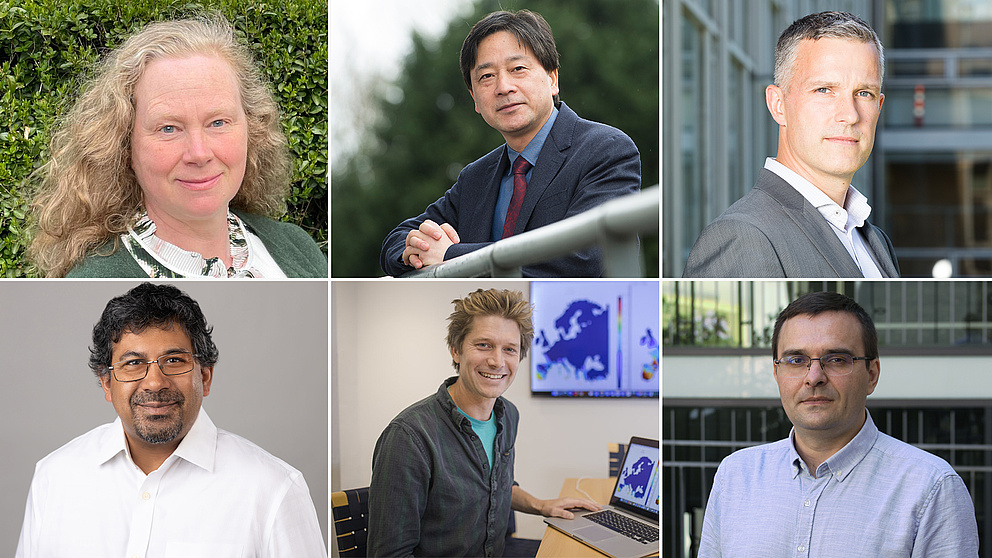

Contact
Press, Communications and Marketing
Tel.: +49 228 833-144
Fax: +49 228 833-441
presse[at]avh.de
An Alexander von Humboldt Professorship which comes with up to €5 million in funding offers not only optimal financial conditions but also maximum flexibility for conducting leading-edge research in Germany. Six individuals have now been selected to receive Germany’s most valuable international research award which is designed to allow them to work for an extended period at a German university. Humboldt Professorships are awarded by the Alexander von Humboldt Foundation and financed by Germany's Federal Ministry of Education and Research.
New Humboldt Professors are to become:
- The neurobiologist Catherina G. Becker who will move to Technische Universität Dresden. Prior to this, she was a professor at the Centre for Discovery Brain Sciences at the University of Edinburgh, United Kingdom.
- The expert for computer-based intelligence Yaochu Jin from the University of Surrey, United Kingdom, will conduct research at the University of Bielefeld University in the future.
- The Karlsruhe Institute for Technology (KIT) nominated the physicist Markus Klute from the Massachusetts Institute of Technology (MIT), Cambridge, USA.
- The mathematician Sayan Mukherjee from Duke University, Durham, USA, was jointly nominated by Leipzig University and the MPI for Mathematics in the Sciences.
- Joacim Rocklöv, an epidemiologist at Umeå University in Umeå, Sweden, is supposed to be switching to Heidelberg University.
- The Julius-Maximilians-Universität in Würzburg nominated Radu Timofte, a computer vision expert at ETH Zurich, Switzerland, and the Technical University of Iasi, Romania.
The new award winners will now embark on appointment negotiations with the German universities that nominated them. They will receive their awards in 2022 following the successful conclusion of their negotiations.
These appointments will lead to the establishment of new institutes and structures that centre on the individual Humboldt Professor, with research fields becoming better connected with one another through their interdisciplinary collaboration at the respective university. Parallel to this, these developments will raise the profile of the individual universities. Thus, the Humboldt Professorship gives German universities the chance to offer top international researchers competitive conditions for research and helps them improve their own standing in the global research market at the same time.
Yaochu Jin, Sayan Mukherjee and Radu Timofte have each been selected to receive an Alexander von Humboldt Professorship for Artificial Intelligence. Additional funding will be available until the year 2024 specifically for Humboldt Professorships in the field of artificial intelligence. These Humboldt Professorships can also focus on the societal, legal and ethical aspects of artificial intelligence.
During its last meeting, the Selection Committee took decisions on 16 nominations. The second selection round for the 2022 Humboldt Professorship will be held in autumn 2021.
Further information about the award winners is available here.
(Press release 12/2021)
updated on 7 July 2021
Every year, the Alexander von Humboldt Foundation enables more than 2,000 researchers from all over the world to spend time conducting research in Germany. The Foundation maintains an interdisciplinary network of well over 30,000 Humboldtians in more than 140 countries around the world – including 63 Nobel Prize winners.
